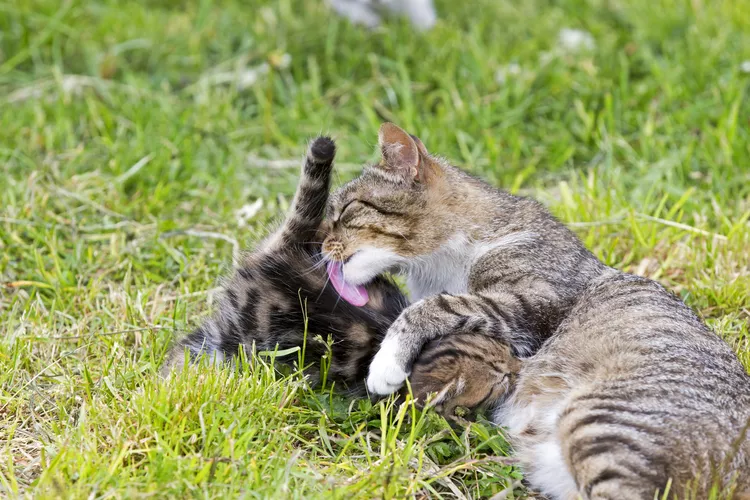How Long Do Kittens Nurse? Here’s How to Know When It’s Time for Real Food

Cats are mammals so that means they nurse their young, but how long do kittens nurse? The nursing period is essential for the kittens' growth and development, providing them with vital nutrients and antibodies.
Here's what you need to know about kitten nursing.
Cat Milk Supply
Adequate nutrition is important for a cat to be able to produce enough milk for all of their kittens. Cats that are nursing should be fed kitten or growth diets that are rich in calories, fat, and calcium to accommodate the additional stress of feeding kittens and the energy requirements of lactation. If you are concerned about the nutritional needs of a mother cat, discuss what you can do with your vet.
During weeks three and four of nursing, the mother cat is at its most stressful and demanding point of lactation. The mother cat’s body has been producing milk continuously for about a month now, but it is also about to slow down.
How Long Do Kittens Nurse?
Kittens nurse for around 12 weeks. Once the kittens have been nursing for about a month, they will begin to wean off of their mother. Liquefied kitten food should be offered to the kittens freely while they still can nurse from their mother. Over the next 6 weeks, the kittens will slowly eat more kitten food and nurse less. The kitten food should go from liquid to watered-down canned food, to regular canned food, then moistened kitten kibble, and finally hard kibble during the weaning time.
If a kitten is eating well on their own but still wants to nurse a lot, you will have to restrict the kitten from accessing their mother for part of the day.
How to Transition to Kitten Food
Mother cats will continue nursing as long as they have kittens to feed. This is helpful if you have a litter of orphaned kittens that need to be fed and have been abandoned by their mother but it is not necessary if you only have kittens who are now eating real food.
Once kittens are eating real food, they usually don't try to nurse, so the milk production will dramatically decrease in the mother cat. The milk should be completely dried up after a couple of weeks, but this is a gradual process.
Problems After Lactation
If your mother cat's teats have remained large, red, and swollen after a week of not nursing, you should have your veterinarian take a look at them. Mastitis is a serious and painful condition if left untreated and may require medications.
-
At what age can kittens leave their mother?
Kittens are usually ready to leave their mother at 12-13 weeks of age.
-
Do mother cats get sad when their kittens are taken away?
Yes, your cat may initially show signs of distress when their kittens leave, but she will eventually settle down. Just ensure you aren't separating kittens and mother cats too soon, as this will have negative consequences for both the kittens and mom.